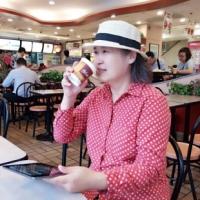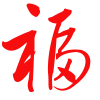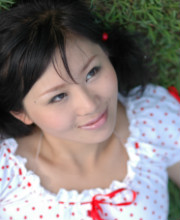| 图片: | |
|---|---|
| 名称: | |
| 描述: | |
- Proud To Be A Pathologist
Proud To Be A Pathologist
by
Qin Huang, MD,PhD, FCAP,FASCP
Veterans Affairs Boston Healthcare System and Harvard Medical School
Nanjing Drum Tower Hospital
January 10, 2010
My fascination of pathologic basis of disease dates back to the time when I was a medical student learning basal ganglia disease in China in the late 1970s. However, I never dreamed of practicing medicine in the United States of America until early 1992 when I entered my second year of postdoctoral training at the Massachusetts General Hospital with my own NIH grant and met a physician from Columbia. He was a postdoctoral fellow in the lab next to ours. We became close friends. He strongly encouraged me to take the American medical board exam and to practice medicine in the United States. I initially hesitated because I was not sure about my skills in the English language and I had been away from clinical practice for over 10 years. I explained my uneasiness to my friend and he offered his help. He let me use his board-review books. Thus, I tried the Step One board exam and was surprised to have a decent score. I was determined to continue. After an intense review for a few more months after my regular working hours, I took and passed the Step Two exam.
When deciding which medical specialty I wanted to practice, I faced a tough choice. Surgery was my favorite when I was in medical school. My family and friends urged me to do Internal Medicine on the basis of my previous experience at the Shanghai Zhong San Hospital. My postdoctoral mentor advised me to be an anesthesiologist in light of my extensive research experience in physiology and pharmacology. My life-long mentor and friend, an internationally renowned neuropathologist at the Massachusetts General Hospital, recommended pathology to me. At that time, I had only a vague impression about pathology practice in the United States but believed that I might like it since I was never tired of morphology and molecular studies of diseases. I followed my gut feeling and chose pathology as my professional field. Retrospectively speaking, I am very happy about my choice. I submitted my applications to local and regional hospitals and was offered several pre-match positions. I enrolled in a pathology residency training program in Boston where I have lived and worked ever since.
My first year of residency training in pathology was very hard and full of not only excitement and achievements, but also frustration and humiliation; and thankfully, no disastrous events. My first rotation was in clinical pathology laboratories and dealt with lab tests and interactions with clinicians. One day, a lab supervisor asked me to take a look at the chemistry test results of a young patient. I was very curious and investigated that case thoroughly. Eventually, the patient was diagnosed with “flesh eating bacterial infection.” We saved the patient’s life and published the case report. The situation changed dramatically when I started the rotation in Anatomic Pathology. I was so excited to see that pathologists could make a diagnosis on a tiny tissue biopsy fragment or even a few cells. I realized that this was great for patients and clinicians. When I started to follow my attending’s dictation and orders, however, I was lost. There was so much use of medical jargon, abbreviations, and personal favorites. To make things worse, my Chinese accent often left me feeling terrible when I saw the weird looks on the faces of my fellow residents, attendings, and clinical colleagues. Despite this frustration, I was determined to do my best for my patients and keep them safe. I believe what the late American Broadcasting Company anchor, Mr. Peter Jennings said, “… in this country (USA), if a foreigner or immigrant wants to have an equal place, he has to work ten times harder.” I vividly remember the day in early 1990s when the entire state of Massachusetts was hit by a huge snowstorm and a state of emergency was declared. I drove over 2 hours to get to the hospital and found that only my department chairman and I were in. I functioned as a resident, secretary, and technician. On that day, he taught me so much on inflammatory bowel disease!
I am happy, blessed, and proud to be a pathologist every day.

- 境随心转
-
本帖最后由 于 2010-04-21 23:00:00 编辑
文章写得很好,尝试着翻了一下,English扔了很多年,水平有限,大家凑和看吧。
我很骄傲自己是一位病理学家
我开始对疾病的病理基础产生兴趣要追溯到在70年代末,当时我是一个医学本科生,在中国学习基底神经节疾病。然而,我做梦都想不到我的病理临床实践却是直到1992年年初在美国才开始的。那时我正好由国家卫生研究院拨款在马萨诸塞州综合医院开始博士后第二年的学习。那时遇到了一位来自哥伦比亚的医生。他也是一个博士后,我们在同一个实验室。离得近,我们自然成了很要好的朋友。他极力鼓励我去美国的医疗管理委员会考试并且在美国执业。我起初还很犹豫,10年的临床实践让我对自己的医术很有信心,但是不知道我的英语能力是否会影响成绩。我对他解释了我的不安,他答应能帮助我。他给我分享了他的考试复习资料。因此,我通过了第一阶段考试,还是一个比较好的成绩,让我有点意外。我决心继续下去。通过利用除工作时间外的所有时间紧张的复习,数个月后,我通过了第二阶段的考试。
在进一步定专业定科时,我面临着艰难的抉择。当我在医学院,手术是我的喜爱。我的家人和朋友劝我继续做内科,因为原先我一直在上海中山医院内科,有很多临床经验。我的博士后导师根据我对生理学和药理学的研究比较多,建议我当麻醉师。在美国马萨诸塞州综合医院一个国际知名的神经病理学家建议病理学给我,他也成为了我终身的导师和朋友。当时在美国的我对形态学和疾病的分子研究很少,对病理学实践只有一点模糊的印象,但相信从此我一定会爱上它。跟着自己的意愿,选择病理做为我的专业领域。现在回想起来,我很庆幸当初自己的选择。我提交了申请,地方和区域医院提供了几个实习地。在波士顿进行的病理培训,使我生活和工作至今。
病理学培训的第一年非常艰苦,有兴奋和成就感,也有无奈和屈辱,谢天谢地,没有灾难性事件。我第一轮转的是在临床病理实验室,进行实验室检测以及跟临床工作者沟通。有一天,一个实验室主管要我给看一下一个年轻的病人化学检测结果。带着强烈的好奇心,经过一系列认真工作,最终,病人被诊断为“食肉细菌感染”。我们发出报告同时挽救了病人的生命。我在解剖病理学轮转时,心态又发了很大的改变。我很兴奋地看到,病理学家可以根据一个小组织活检片段甚至少数细胞就能做出诊断。我意识到对于病人和临床医生来说,这样的工作是多么伟大啊。当我开始跟随着描述和诊断时,我又开始迷茫了。
有这么多的医疗专科术语,简称,各自特点。更糟糕的是,当我看到我的同胞的患者,住院医师、临床的同事在听到我的中文口音露出着古怪的表情,会让我感觉很不安。尽管这条路很艰难,我一定会尽我所能为我的病人,并赢得他们的信任。我相信已故美国广播公司主播,彼得詹宁斯先生说:“...在这个国家(美国),如果外国人或移民希望有一个平等的位置,他要更加努力工作的10倍。”20世纪90年代初,那天我清楚地记得,美国马萨诸塞州出现巨大的暴风雪并国家宣布整个地区处在紧急状态中。我开车2个多小时才到医院,结果发现只有我和系主任,我又当住院医兼秘书兼技术员。这一天,他教结我很多有关炎症性肠病的东西。
我很骄傲能成为一位病理学家,并且每一天都因此感到快乐,幸福。

- 接下前辈手中的宝刀,为了热爱的病理事业,寂寞与贫穷一辈子又何防!

















